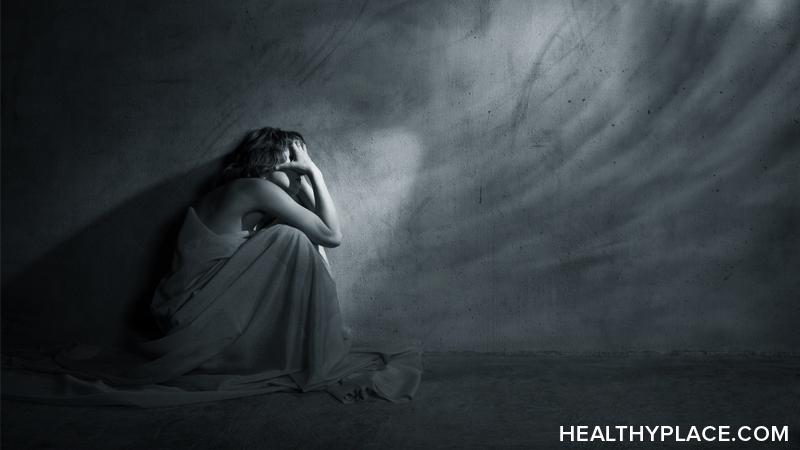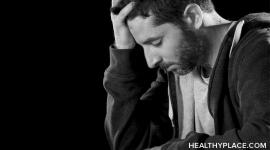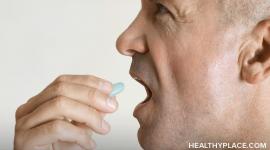Psychotic Depression Symptoms and Treatment

Roughly 25% of people admitted to the hospital for depression suffer from psychotic depression. Psychotic depression, clinically referred to as major depressive disorder with psychotic features, is characterized by not only depressive symptoms but also hallucinations or delusions. A person with psychotic depression has detached from reality. Often, psychotically depressed people become paranoid or come to believe their thoughts are not their own or others can "hear" their thoughts.
While people with other mental illness, like schizophrenia, also experience these symptoms, those with psychotic depression are usually aware these thoughts aren't true. They may be ashamed or embarrassed and try to hide them, sometimes making this variation of depression difficult to diagnose. After its onset, there is an increased risk of bipolar depression, recurring episodes of psychotic depression and suicide.
It is important that a person experiencing psychotic depression symptoms be properly diagnosed because treatment for psychotic depression is different than that for other major depressive illnesses.
Psychotic Depression Causes
Researchers aren't exactly sure what causes psychotic depression, but it's frequently associated with high blood levels of a hormone called cortisol. Cortisol is an important steroid hormone produced by the adrenal glands. More cortisol is released during times of stress – biological and psychological.
While not a direct psychotic depression cause, it is known that those with a family history of depression or psychotic illness are more susceptible to psychotic depression.
When being diagnosed, other causes of the psychotic depression symptoms should be examined such as schizophrenia, bipolar disorder, substance abuse or an organic brain illness.
Psychotic Depression Symptoms
Common psychotic depression symptoms include:
- Anxiety
- Agitation
- Hypochondria
- Insomnia – difficulty falling asleep and frequent waking during the night
- Physical immobility
- Constipation
- Cognitive impairment
- Suicide
Psychotic Depression Treatment
Psychotic depression treatment typically requires a hospital stay and close follow-up by a mental health professional. Combinations of tricyclic antidepressants and antipsychotic medications have been most effective in easing symptoms. The addition of lithium to this combination can be beneficial for those with bipolar disorder.
Electroconvulsive therapy (ECT) is a very rapid and effective treatment for psychotic depression. Because of the severity of psychotic depression symptoms, electroconvulsive therapy is often the treatment of choice.1
Psychotic Depression Prognosis
Psychotic depression treatment is very effective and people are able to recover, usually within a year, but continual medical follow-up may be necessary. Generally, the depressive symptoms have a much higher rate of recurrence than the psychotic symptoms.
APA Reference
Tracy, N.
(2022, January 3). Psychotic Depression Symptoms and Treatment, HealthyPlace. Retrieved
on 2025, April 14 from https://www.healthyplace.com/depression/major-depression/psychotic-depression-symptoms-and-treatment


